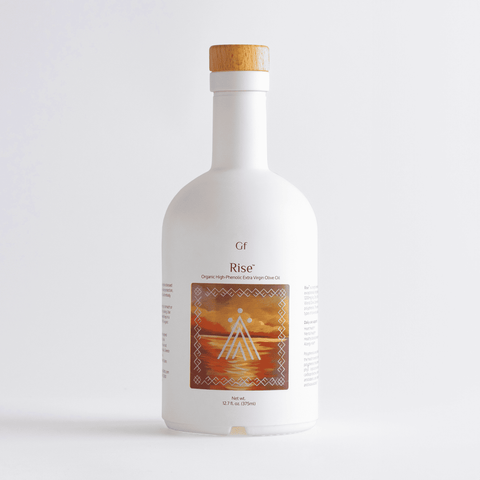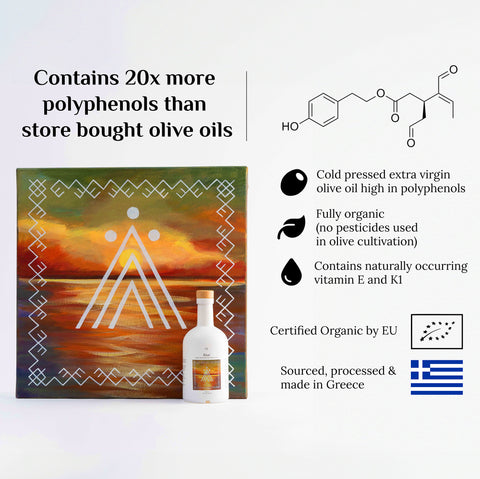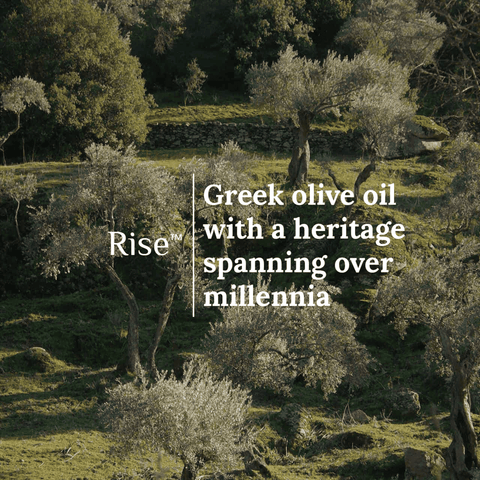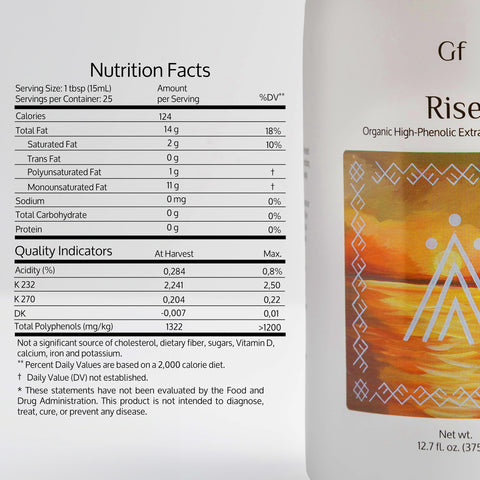The Mediterranean diet is globally recognized for its heart-health benefits, and olive oil is a cornerstone of this dietary approach. Among its many contributions to cardiovascular well-being, olive oil plays a crucial role in managing cholesterol levels. This article explores how olive oil helps improve heart health, supported by scientific evidence.
1. Understanding Cholesterol and Its Role in Heart Health
Cholesterol, a waxy substance found in your blood, is vital for building cells and producing hormones. However, not all cholesterol is created equal:
- LDL (Low-Density Lipoprotein): Often called "bad cholesterol," high levels can lead to plaque buildup in arteries, increasing the risk of heart disease.
- HDL (High-Density Lipoprotein): Known as "good cholesterol," it helps remove excess LDL from the bloodstream.
Maintaining a healthy balance between LDL and HDL is critical for cardiovascular health.
2. The Impact of Olive Oil on LDL and HDL Levels
Olive oil, particularly extra virgin olive oil (EVOO), is rich in monounsaturated fatty acids (MUFAs) and antioxidants that positively influence cholesterol levels:
- Reduces LDL Cholesterol: Studies show that replacing saturated fats with MUFAs from olive oil can significantly lower LDL levels, reducing the risk of arterial plaque formation (source).
- Boosts HDL Cholesterol: EVOO consumption has been linked to increased HDL levels, which helps protect against cardiovascular disease (source).
3. Polyphenols: Olive Oil’s Secret Weapon
EVOO is rich in polyphenols, natural compounds with powerful antioxidant and anti-inflammatory properties. These polyphenols directly impact cholesterol management by:
- Preventing LDL Oxidation: Oxidized LDL is more likely to stick to arterial walls, contributing to plaque buildup. Polyphenols help neutralize free radicals, preventing this harmful process (source).
- Enhancing HDL Functionality: Polyphenols improve the efficiency of HDL particles in removing LDL from the bloodstream (source).
 4. Olive Oil and Triglycerides
4. Olive Oil and Triglycerides
Triglycerides, another type of fat in the blood, can also increase the risk of heart disease when elevated. Regular consumption of olive oil has been shown to:
- Lower triglyceride levels after meals.
- Improve overall lipid profiles when combined with a heart-healthy diet (source).
5. Anti-Inflammatory Properties and Heart Health
Chronic inflammation contributes to the development of atherosclerosis, the buildup of plaques in arteries. Olive oil contains bioactive compounds like oleocanthal that mimic the effects of anti-inflammatory medications:
- Reduces Arterial Inflammation: Oleocanthal inhibits inflammatory enzymes, protecting blood vessels (source).
- Improves Endothelial Function: Polyphenols in olive oil enhance the health of the endothelium, the thin layer of cells lining the blood vessels, promoting better blood flow (source).
6. The Role of Extra Virgin Olive Oil in the Mediterranean Diet
The Mediterranean diet’s emphasis on EVOO as a primary fat source has been associated with:
- A 30% reduction in cardiovascular events, as demonstrated in the landmark PREDIMED study (source).
- Improved cholesterol ratios and lower risks of heart attack and stroke.
 7. How to Incorporate Olive Oil for Maximum Benefits
7. How to Incorporate Olive Oil for Maximum Benefits
To harness the heart-health benefits of olive oil:
- Opt for Extra Virgin Olive Oil: It contains the highest levels of polyphenols and MUFAs.
- Use it Daily: Add it to salads, drizzle over vegetables, or use it as a healthy cooking fat.
- Avoid Overheating: Cook at moderate temperatures to preserve its beneficial compounds.
8. Choosing the Best Olive Oil
High-quality olive oil makes a difference. Look for:
- Cold-Pressed, Extra Virgin: Ensures minimal processing and maximum nutrients.
- High Polyphenol Content: Brands like Rise Polyphenol-Rich Olive Oil offer superior health benefits.
Olive oil is more than just a kitchen staple—it’s a natural ally in improving cholesterol and protecting heart health. By incorporating EVOO into your diet, you can enjoy its delicious flavor while supporting your cardiovascular well-being.







